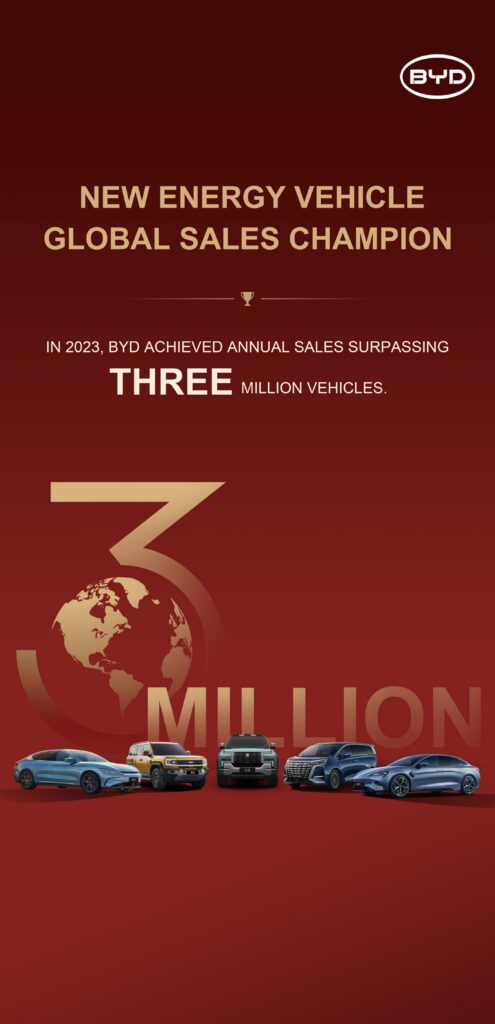While Tesla retained its position as the largest EV manufacturer on Earth in 2023, China’s BYD made significant strides and relied on hybrid vehicles to surpass its American rival in total vehicle sales.
On Tuesday, the Chinese automaker announced that it had sold 3,024,417 vehicles in the year that just ended. As a result, it asserts its position as the largest manufacturer of new energy vehicles (including electric, hybrid, and hydrogen drivetrains) globally, making it the leading brand in its domestic market. Additionally, for the first time ever, it has joined the ranks of the top 10 global automakers by sales.
Out of the vehicles sold in 2023, 1.57 million were solely powered by electricity, while another 1.4 million were plug-in hybrids. This means that Tesla retained its position as the company with the highest number of EV sales worldwide, totaling 1.8 million units.
Read: Tesla Delivers 1.8 Million EVs In 2023, But BYD Closes In

However, BYD has been narrowing the gap. In 2022, the Chinese automaker sold approximately 400,000 fewer EVs than Tesla, while this year, that difference has been nearly cut in half. Notably, in the fourth quarter of 2023, BYD outsold its American rival in EVs, indicating that Tesla may face a significant challenge in retaining its EV leadership in 2024.
BYD’s impressive performance in 2023 is attributed, in part, to its expanding exports. China is projected to have become the world’s largest vehicle exporter in 2023, thanks to brands like BYD, which saw a 334 percent increase in vehicle sales in foreign markets compared to the previous year.
In total, the automaker sold 242,765 vehicles across 70 countries. BYD, along with other brands from China, is aggressively expanding into significant global auto markets, including Europe. Their impact on the continent’s automakers is so significant that Europe is now investigating Chinese state subsidies and contemplating its own measures in response.
Despite its strong performance, BYD’s shares value fell slightly today, per CNN. That’s because the automaker’s sales were slightly lower than market expectations.





